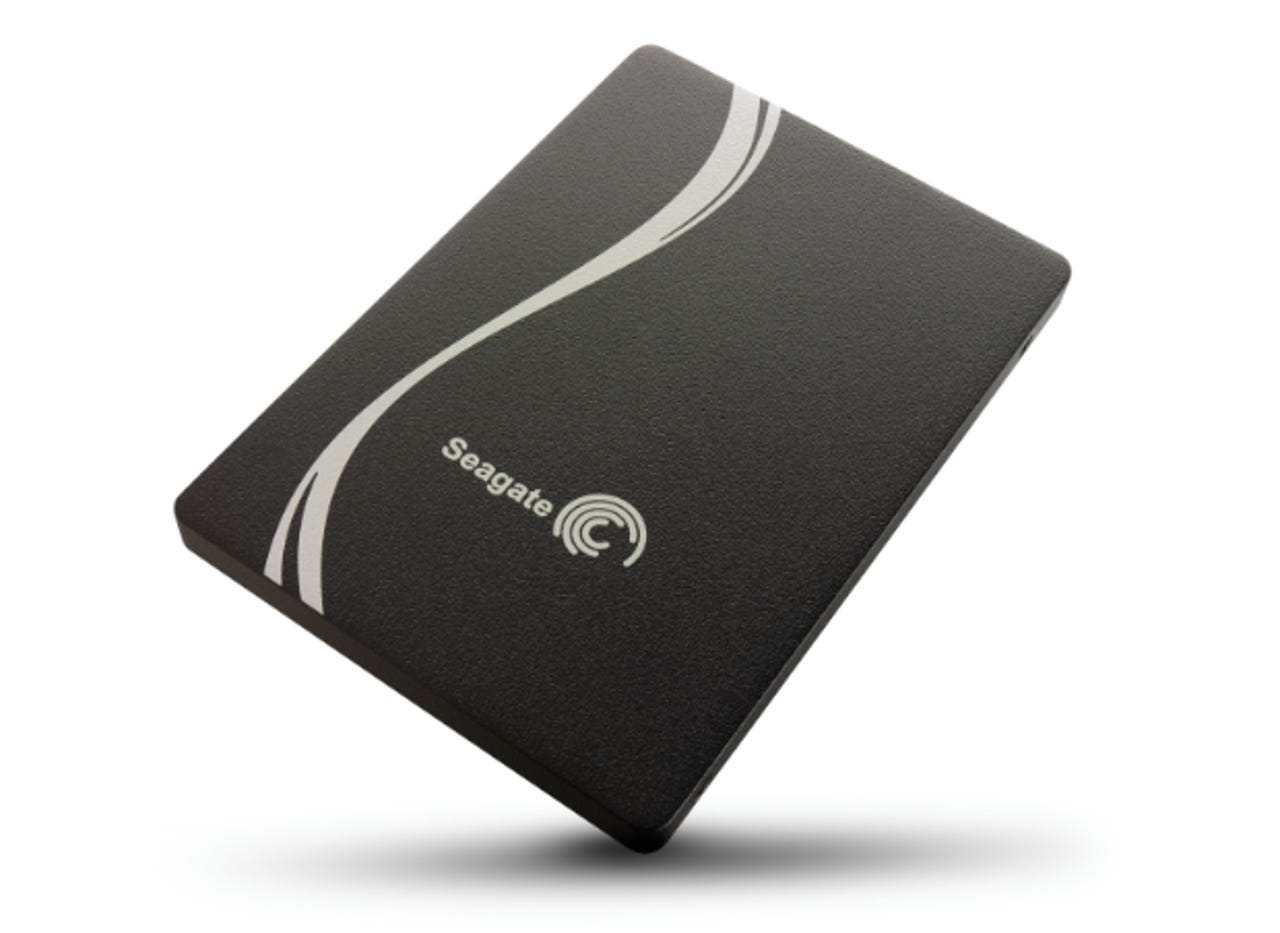Seagate unveils trio of enterprise SSDs, PCIe card


New solid state drives from U.S. storage company Seagate are in the news this morning, including its first client SSD, a new generation of its enterprise SSDs and PCIe accelerator card that will get your blood pumping.
Kidding on the last part, of course.
First, say hello to Seagate's new line of solid-state drives: the 600, 600 Pro and 1200.
The 600 (pictured, above) is pitched as the "ultimate laptop upgrade"—courtesy its 6Gb/s SATA interface—with faster boot times, shorter application load times and, in general, more kick for your system. Capacity goes up to 480 gigabytes and it's available in a number of 2.5-inch sizes, including a lithe 5-millimeter edition.
The 600 Pro has the same 6GB/s SATA interface but is attuned more to low-power uses (it's rated at 2.8 watts), such as for cloud systems, hyperscale datacenters, content delivery networks and virtualized environments. Like its laptop-loving brother, it's available in capacities up to 480GB and comes in the usual 2.5-inch size.
The 1200 is the barn-burner of the bunch, with a dual port 12Gb/s SAS connector (backwards compatible to 6GB/s) and performance-optimizing algorithms that result in "100 percent faster interface speed" and "twice the I/O bandwidth" as previous generations. It's available with up to 800GB capacity and comes in either 1.8-inch or 2.5 inch sizes.
The company didn't mention price points.
In addition to the drives, Seagate also rolled out its X8 Accelerator PCIe card, which can manage up to 1.1 million input-output operations per second (that's IOPS for short).
Seagate claims that it's "up to twice as fast" as the closest competitor, a boast to be sure, and "closer to DRAM performance than storage." (We'll let you decide on that one.)
It can handle capacities up to 2.2 terabytes, comes in a HHHL ("half height, half length") format and works with Microsoft SQL Server, Oracle Enterprise Server, MySQL and VMware.